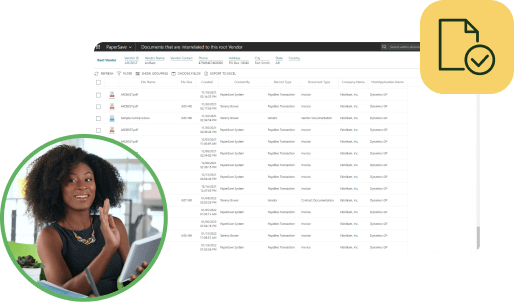Thousands of businesses use the cloud in some form, and the most compelling reason they do so is to have a fully paperless environment that cuts costs, streamlines processes, and mobilizes employees. This is why a cloud-based document management system (DMS) like
PairSoft have become a mainstay IT solution. However, there are some skepticism, leading to misconceptions about cloud migrations. Below are four of the most common cloud migrations myths you need to stop believing in right away.
Myth #1: Anyone can access your data in the cloud
The most frequently cited concern about cloud migrations is that data can be accessed by anyone if it’s in the cloud. This is because people assume the cloud is susceptible to a slew of cyberattacks. What’s more, computing, networking, and hardware resources are shared with other cloud customers, so people mistakenly believe their data can be accessed by others using the same cloud services.
However, cloud providers utilize several solutions to make sure such incidents never happen. They use “virtual machines” to separate cloud customers’ data even if they both reside in the same servers. Also, cloud DMS comes with multiple layers of security, making it difficult for anyone to access or tamper with your data.
Myth #2: Cloud providers manage all security
There’s no question that top-notch cloud services providers upgrade their systems regularly and protect your data with state-of-the-art threat detection and prevention systems, but both provider and customer must work together to manage all facets of data security.
In reality, cloud providers and customers have a shared responsibility for securing data. The former takes charge of securing cloud data centers with cybersecurity software, surveillance systems, and backup tools, while the latter is responsible for keeping their data and network safe from unauthorized access.
This means you, the customer, will need to implement access restrictions to avoid internal data leaks, multi-factor authentication to prevent account hijacking, and advanced encryption systems applied to data at rest and in transit to defend against data interception attacks.
Myth #3: You must move everything to the cloud at once
While moving all your data to the cloud can offer many benefits, there’s no need to migrate everything overnight. Migrations can be an iterative process in which you upload files in batches and make sure they’re being processed correctly by the cloud system. If your scanned documents aren’t indexed properly and are going in the wrong folders, you’ll be able to identify these problems quickly and fix your cloud DMS settings so the next batch of documents can be migrated smoothly.
Another benefit of an iterative process, as opposed to an “all-or-nothing” migration, is the training process. A small team can get acquainted with the cloud DMS and fix potential workflow issues early before you roll it out to other departments.
Myth #4: Cloud migrations are straightforward
Anyone claiming that cloud migrations are easy to do alone is mistaken. There are several things to consider when moving to the cloud: You need to evaluate your current systems, decide what stays and goes, and test the cloud DMS (all of which are explored in detail in our previous entry about how to perform cloud DMS migrations).
Additionally, it’s important to configure your firewalls, access restrictions, and electronic workflows properly before starting the migration. If you’re planning to integrate your cloud DMS with other third-party software, you need to check whether both systems are compatible and customize them so documents flow seamlessly from your DMS database to the other.
Doing all this can be overwhelming for anyone who has little to no experience with cloud DMS, which is why it’s best to work with a provider that can walk you through every step of the migration process.
PairSoft doesn’t just provide an effective and reliable document management solution, we also guarantee that your transition to the cloud is as fast and smooth as possible. Contact us today for guidance with cloud migrations. Or, if you want to learn more about PairSoft, sign up for a free personalized demo to take it out for a spin!







